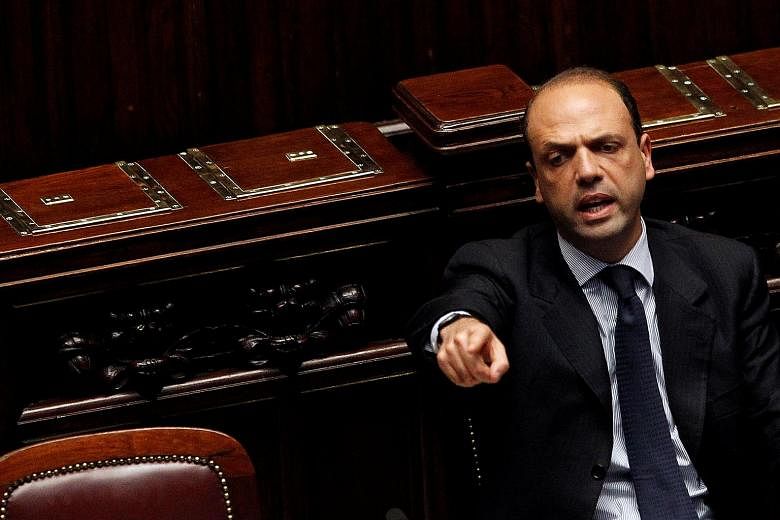ROME (Reuters) - The government will not resign whatever happens in the forthcoming referendum on constitutional reform, Interior Minister Angelino Alfano said on Sunday (Oct 2), looking to allay fears over the stability of Italy.
Prime Minister Matteo Renzi has said on repeated occasions that he would stand down if he loses the Dec 4 vote, but in recent weeks he has refused to be drawn on the question, saying it was distracting from the debate on the merits of the reform.
Most recent polls have put the "No" camp ahead, raising concern in EU capitals that Italy might find itself without a strong government at a time when the bloc is still reeling from Britain's vote to abandon the European Union.
But Alfano, who is head of a small centre-right party and is not a member of Renzi's Democratic Party (PD), said the government would stay in place, regardless, indicating that the prime minister himself would not resign. "Whoever agrees with the content of this reform, but votes'No' only because they want to send Renzi packing should know that this government will not quit, so you might as well vote'Yes'," he told Il Messaggero newspaper.
He told the paper that the "No" camp consisted of a broad alliance of parties that shared no other common ground. "Therefore this is the only government possible," he said.
Mr Renzi himself has said that in the case of a "No" vote, the president would not call early elections, predicting that the legislature would carry on until its scheduled end in 2018.
If the referendum is lost, Italy will almost certainly need a new electoral law, because the current version was drawn up in the anticipation of a "Yes" vote and therefore only concerns the lower house of parliament. The constitutional reform calls for an end to a directly elected Senate, the upper house.
Another complication is the fact that Italy hosts top level meetings for the Group of Seven next year, and any early election would stymie preparations.
The reform will sharply reduce the role of the Senate, stripping it of the power to bring down governments or block legislation indefinitely. Mr Renzi says this will help bring much-need political stability to Italy, which has seen 63 governments take office in some 70 years.
Opponents say the new constitution is badly written and strips Italy of the democratic checks and balances introduced after World War II to prevent the return of authoritarian rule.

